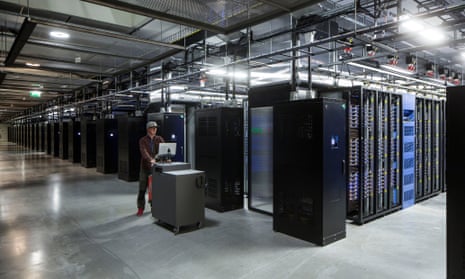Stop! Don’t send that email. Don’t offer thanks or send a jokey message. If you do, you will add to your carbon footprint. Be rude, say nothing – and save the planet.
A new study commissioned by energy company OVO reckons Brits send more than 64m unnecessary emails every day, and that if every adult in the UK sent one fewer “thank you” email a day we would save more than 16,433 tonnes of carbon a year – equivalent to 81,152 flights to Madrid or taking 3,334 diesel cars off the road.
These are the sorts of stats beloved of green energy companies trying to get a bit of free publicity. But it’s all true, according to Mike Berners-Lee, a professor in the environment centre at Lancaster University, author of How Bad are Bananas: The Carbon Footprint of Everything, and brother of Tim Berners-Lee, inventor of the web. True in very general terms anyway: he probably won’t vouch for all those flights.
How can one little email destroy the planet, I ask Mike Berners-Lee, who advised OVO on the research. “When you are typing, your computer is using electricity,” he says. “When you press send it goes through the network, and it takes electricity to run the network. And it’s going to end up being stored on the cloud somewhere, and those data centres use a lot of electricity. We don’t think about it because we can’t see the smoke coming out of our computers, but the carbon footprint of IT is huge and growing.”
The electricity I grasp; the cloud is a bit beyond me. “It’s made up of enormous data centres all over the world,” Berners-Lee explains. “They are burning through huge amounts of electricity.” Super-efficient communication and storage is killing us. Every silver lining has a cloud.
Berners-Lee admits the numbers are “crude estimates”, but says they are a useful way of making a general point. “When we take a small action to cut carbon,” he says, “it’s a message to yourself that you care about the climate emergency.”
Does he blame his brother for all this? He laughs. “Many good things have come out of the web,” ... but only if we use it selectively.
Now, how on earth do I file this piece?

Comments (…)
Sign in or create your Guardian account to join the discussion